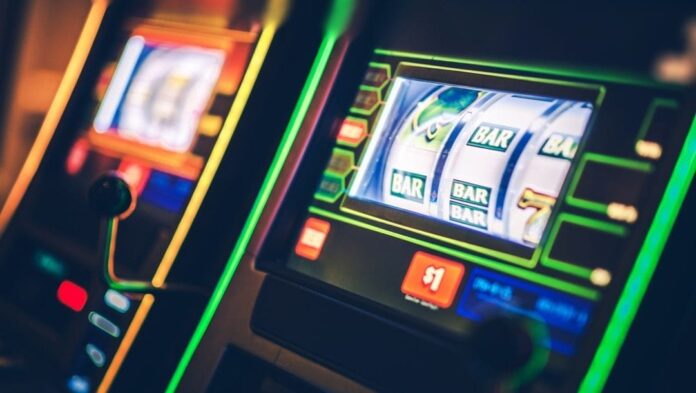Slot machines have long been a mainstay of casinos worldwide, captivating players with their flashing lights, enticing sounds, and the promise of substantial payouts. But have you ever wondered how these seemingly random machines determine when and how much to pay out?
In this article, we’ll delve into the intricacies of slot machine payout algorithms, demystifying the process behind the spinning reels and shedding light on how casinos set their payout rates.
The Basics of Payouts

At the heart of every slot machine lies a complex algorithm known as a Random Number Generator (RNG). This software program generates thousands of random numbers every second, even when the machine is not in use.
When a player presses the spin button, the RNG stops at a particular sequence of numbers, determining the outcome of the spin. This process happens so quickly that it creates the illusion of chance, keeping players engaged and entertained.
One crucial concept to grasp when it comes to payouts is the payback percentage, also known as return to player (RTP). This percentage represents the amount of money the machine is programmed to pay back to players over time.
For example, a slot machine with a 95% RTP will theoretically return $95 for every $100 wagered. While individual sessions may deviate from this percentage, over millions of spins, the machine will approach its programmed RTP, ensuring the casino’s profit margin.
Factors Influencing Payout Rates
Every type has a different payout algorithm and degree of volatility, and they are all different sizes and forms. While high-volatility games provide greater rewards less frequently, low-volatility games give lower payouts more frequently.
To maximize their gaming experience, gamers must comprehend volatility. Furthermore, additional features and multipliers are frequently included by game designers to boost excitement and raise the possibility of large wins.
The gambling industry is subject to strict regulations and oversight to ensure fairness and transparency. Gaming commissions and regulatory bodies enforce rules regarding payouts, requiring casinos to adhere to minimum payout percentages.
These regulations vary by jurisdiction, with some regions mandating higher payouts than others. Casinos must regularly audit their gaming machines to verify compliance with these regulations, providing players with a level playing field and instilling confidence in the gaming experience.
Maximizing Your Chances of Winning

While they operate on random chance, there are strategies players can employ to maximize their chances of winning. Opting for machines with higher RTP percentages increases the likelihood of receiving payouts over time.
Additionally, selecting games with lower volatility can result in more consistent wins, albeit of smaller amounts. Researching and understanding the payout rates and volatility can give players an edge when deciding where to invest their time and money.
Effective bankroll management is essential for any gambler, regardless of the game they’re playing. Setting a budget and sticking to it prevents players from chasing losses and allows them to enjoy the gaming experience responsibly.
Whether playing for entertainment or profit, establishing clear financial boundaries ensures that enthusiasts can enjoy the thrill of the game without risking financial hardship. By exercising discipline and restraint, players can extend their playing sessions and increase their chances of hitting a significant win.
The Evolution of Slot Machine Technology
Over the decades, slot machine technology has undergone a remarkable evolution, transitioning from mechanical contraptions to sophisticated digital platforms. Early slot machines relied on physical reels and mechanical components to determine outcomes, with limited variation and payout potential.
However, advancements in computing and software engineering have revolutionized the industry, paving the way for modern video slots with immersive graphics, interactive bonus rounds, and dynamic payout structures.
As technology continues to progress, we can expect further innovations in design and functionality, offering players an ever-expanding array of gaming options and experiences. For the latest insights into trends and innovations, visit https://slotgenz.com/.
Understanding Variance

Variance, also known as volatility, is a critical concept for enthusiasts to grasp. It refers to the level of risk associated with a particular game and influences the frequency and size of payouts. Low-variance slots provide steady but modest wins, making them ideal for players who prefer a more conservative approach.
In contrast, high-variance slots offer the potential for substantial payouts but come with greater volatility and the risk of extended losing streaks. Understanding the variance allows players to tailor their gameplay to their risk tolerance and desired level of excitement.
The Psychology of Design
Manufacturers employ various psychological techniques to enhance player engagement and prolong gaming sessions. Everything from the colors and sounds of the machine to the placement of buttons and symbols is meticulously designed to create an immersive and rewarding experience.
Features such as near-misses and celebratory animations trigger the brain’s reward system, encouraging players to continue spinning the reels in pursuit of the next big win. By understanding the psychological tactics employed, players can make more informed decisions and avoid falling prey to manipulative strategies.
Responsible Gambling Practices

While they offer entertainment and the potential for winnings, it’s essential for players to approach gaming responsibly. Setting limits on time and money spent on gambling helps prevent excessive losses and mitigates the risk of developing gambling-related problems.
Many casinos offer resources and support for responsible gambling, including self-exclusion programs and access to counseling services. By prioritizing self-awareness and exercising discipline, players can enjoy the excitement of gaming without succumbing to negative consequences.
The Future of Slot Machine Innovation
As technology continues to advance, the future of gaming machine innovation looks promising. Virtual reality (VR) and augmented reality (AR) are poised to revolutionize the gaming experience, transporting players to immersive digital worlds where the boundaries between reality and fantasy blur.
Additionally, blockchain technology holds the potential to enhance transparency and security within the gambling industry, providing players with provably fair games and decentralized betting platforms. With each new technological breakthrough, they evolve to offer increasingly engaging, immersive, and rewarding experiences for players around the globe.
Conclusion
While slot machines may seem like enigmatic contraptions designed to take your money, understanding the mechanics behind their payout algorithms can empower players to make informed decisions and potentially increase their winnings.
From the intricate workings of RNGs to the influence of game design and volatility, numerous factors contribute to the payout rates.







